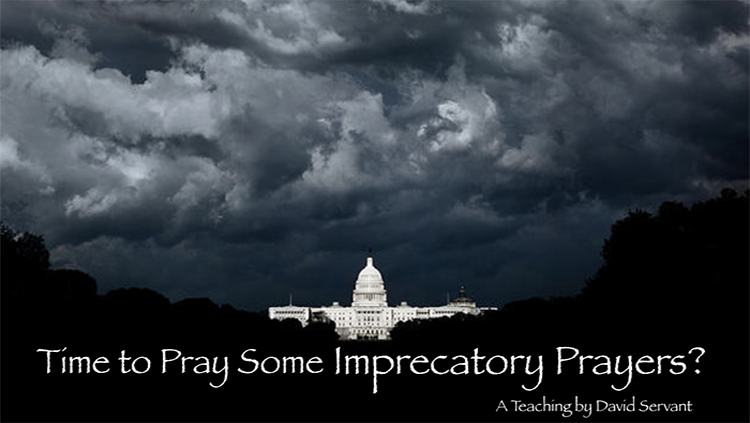
Have you ever felt yourself getting fed up with evil people? Even burning with an inward rage against them? But then felt bad for your “un-Christian” attitude?
In truth, you should not be so hard on yourself. God has the same feelings. In fact, He has a similar inner conflict, constantly.
Obviously, mercy and judgment are two opposites that, if held together, must be held in tension. God is both just and merciful, as revealed from the Bible’s first to last page. For that reason, He holds both attributes in tension.
When He “withholds His judgment,” that indicates He is inclined towards justice, but has decided to continue to show mercy. As James wrote, “mercy triumphs over judgment” (Jas. 2:13). On the other hand, when God’s mercy ends, His judgment—rooted in His justice—begins.
I can’t imagine that anyone would disagree with me that it would be wrong to find fault with God during a time when His mercy ends and His judgment falls. In fact, it would seem very appropriate then to be fully on God’s side. We read, for example, in Revelation:
Then the third angel poured out his bowl into the rivers and the springs of waters; and they became blood. And I heard the angel of the waters saying, “Righteous are You, who are and who were, O Holy One, because You judged these things; for they poured out the blood of saints and prophets, and You have given them blood to drink. They deserve it.” And I heard the altar saying, “Yes, O Lord God, the Almighty, true and righteous are Your judgments” (Rev. 16:4-7).
Wouldn’t it seem odd if someone in heaven had said at that point, “Great and merciful God, why didn’t you show them more mercy?” To be at odds with God when He has made up His mind would seem rebellious.
In any case, just as God holds both mercy and justice in tension, so do all of us who are created in His image. And we would all be wise to do our best to imitate Him, since He is perfect. That means not only being merciful as He is merciful, but also rejoicing in His justice (knowing that vengeance is His, not ours).
Obviously, when the tension between God’s mercy and justice reaches the critical point when it is “about to snap,” that is a scary time. When Peter wrote to the churches in his day: “It is time for judgment to being with the household of God, and if it begins with us first, what will be the outcome for those who do not obey the gospel of God?” (1 Pet. 4:17, emphasis added), I suspect it motivated most of his readers to consider some self-examination.
Apparently, God’s judgment on His church can be a precursor of His judgment upon the world, because “to whom much is given, much is required.” The church is first, because it has been entrusted with so much.
Again, not everyone will agree with me, but my observation tells me that judgment has started falling on the lukewarm, uncommitted, and apostate church and its leaders. For that reason, I am anticipating some manifestations of God’s judgment on the wicked world and its corrupt leaders. I could, of course, be wrong, as I would never have predicted the last 2,000 years of God’s mercy.
In keeping with this theme, we have examples of what are referred to by theologians as the Bible’s “imprecatory prayers,” when some saint requests God’s judgment upon his enemies (instances can be found, for example, in Psalms 5, 10, 17, 35, 58, 59, 69, 70, 79, 83, 109, 129, 137 and 140). Essentially, those prayers are requests for the end of God’s mercy and the start of His justice. All are inspired by the Holy Spirit. They seem to stand in contrast to Jesus’ commandment to love our enemies, but actually, they balance them. Exploring that balance is beyond the scope of this little article. I will say, however, that God’s judgment upon the wicked can also be viewed as an act of love upon the righteous. That being so, prayers for God’s judgment upon the wicked can actually be prayers of love for those who suffer because of the wicked.
Regardless, it seems from Scripture that, just as God’s people’s prayers can stall His judgment (see, for example, Ezek. 22:28-30), so God’s people’s prayers can accelerate His justice. In a way that is certainly mysterious to me, our prayers can influence God when His mercy and judgment are in the state of highest tension.
All of that is to say, when you “hunger and thirst for righteousness,” as do all true followers of Christ, you can find yourself motivated to pray imprecatory prayers against the wicked, knowing that your prayers can actually influence God, because that is how He designed it. Amazing to think about, I know.
The only question that remains is, “Is this an appropriate time to be praying imprecatory prayers against evil and wicked leaders in our nation?” I confess that I am of that opinion that it is.
Again, I could be wrong, but not on the basis of what Scripture clearly teaches, but only on the basis of timing. Yet even apart from the indwelling Holy Spirit as our guide, it just seems to me that many of our nation’s leaders have degenerated to the point that praying for God’s judgment to fall on them is more than appropriate.
What do you think?

